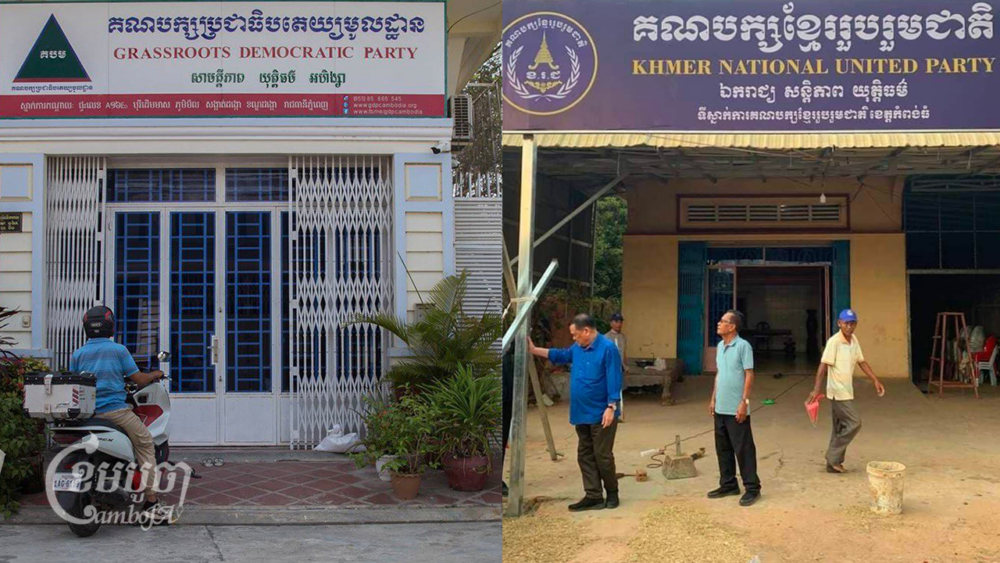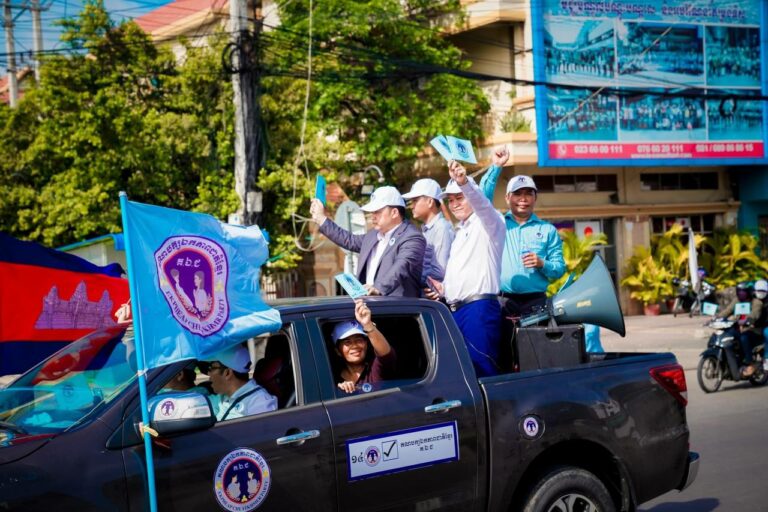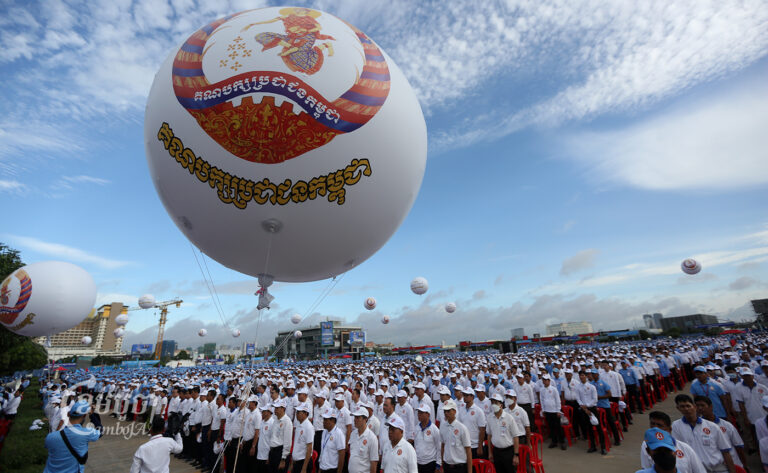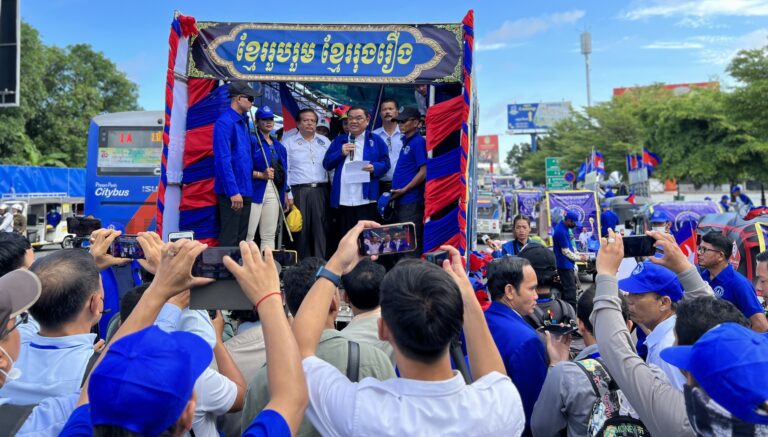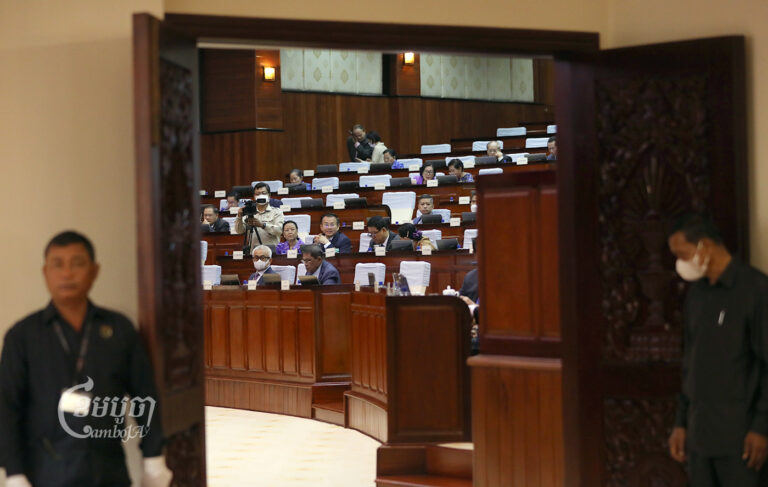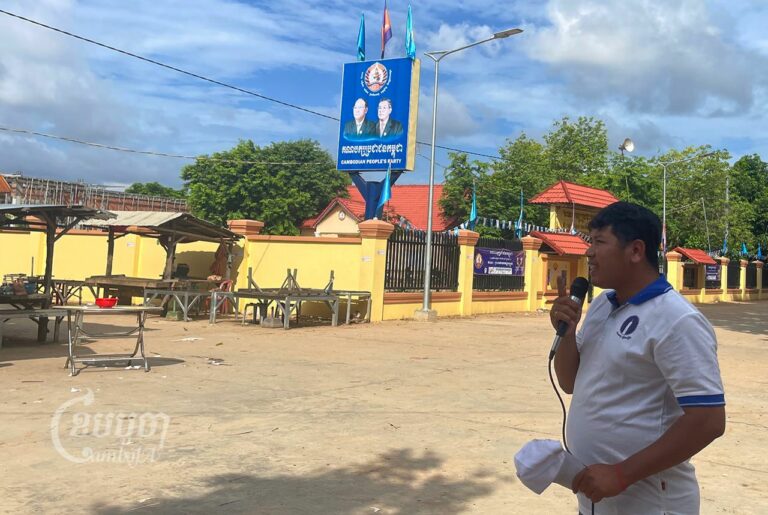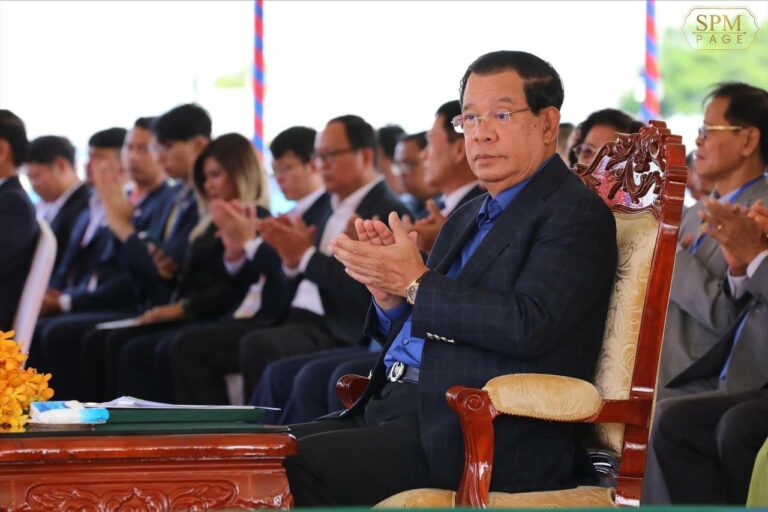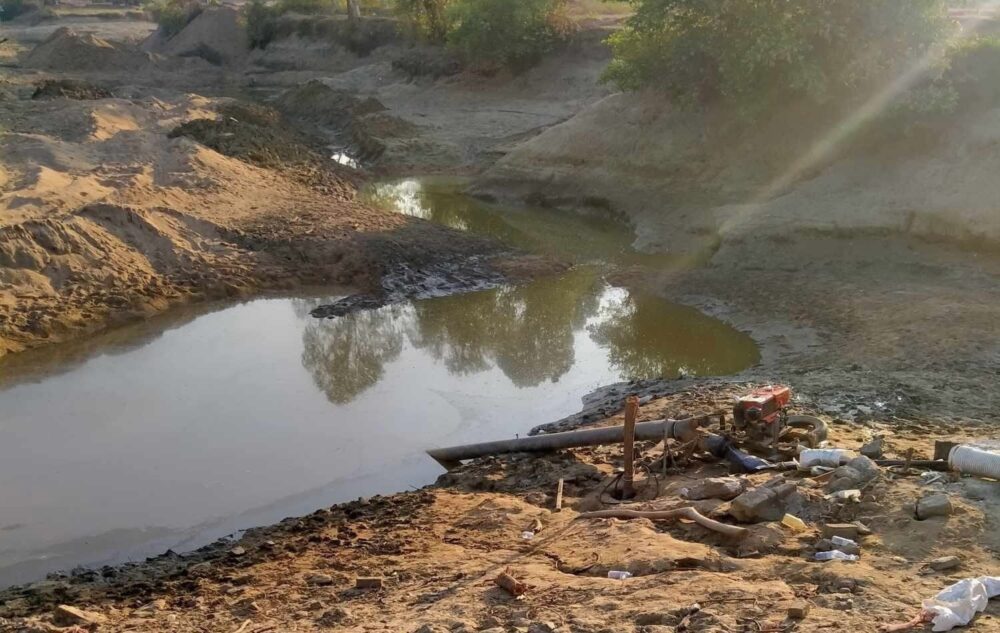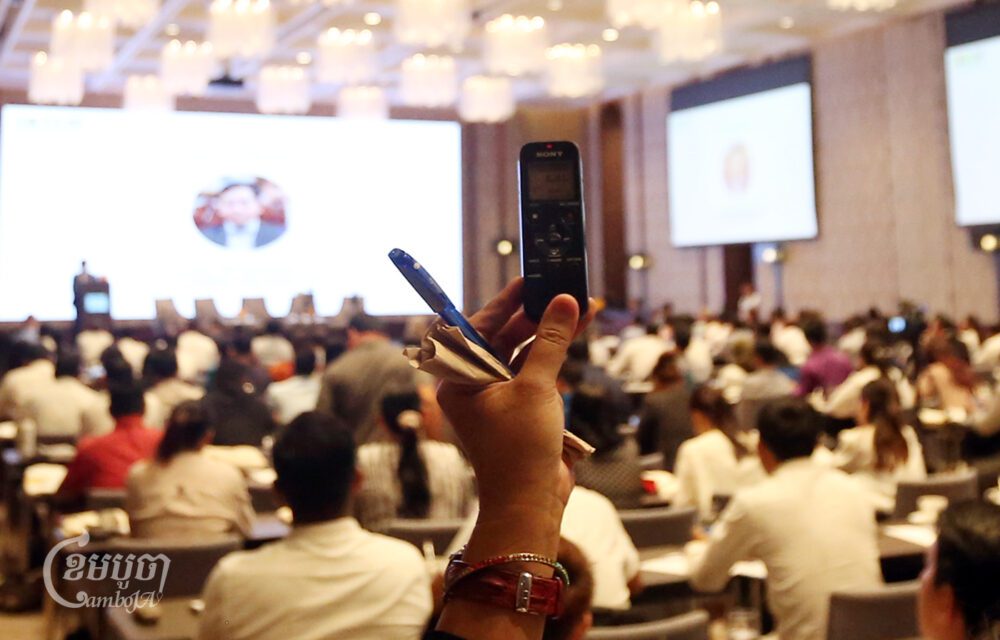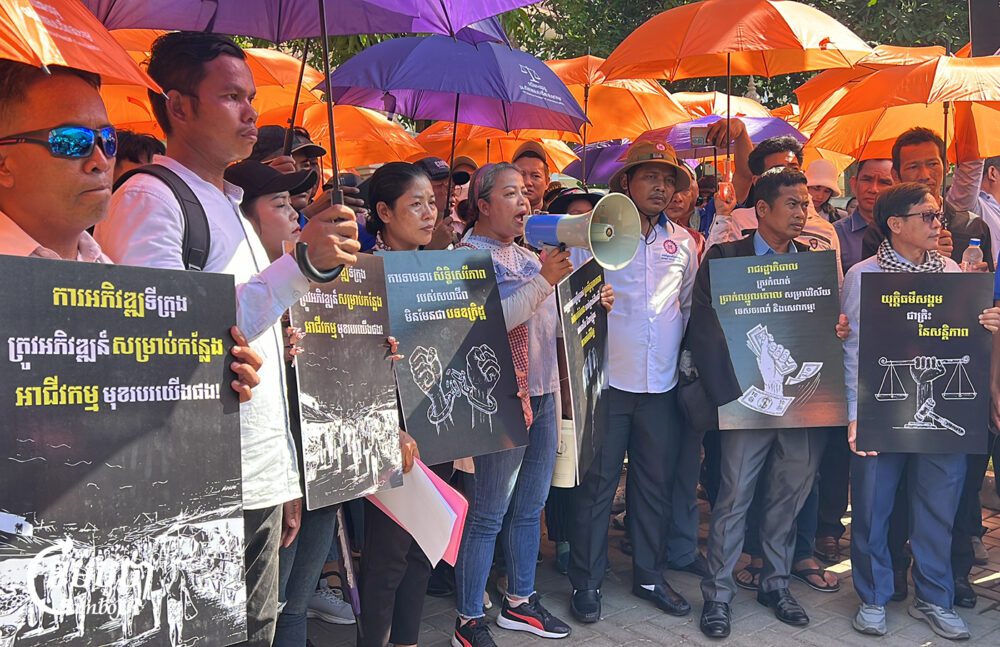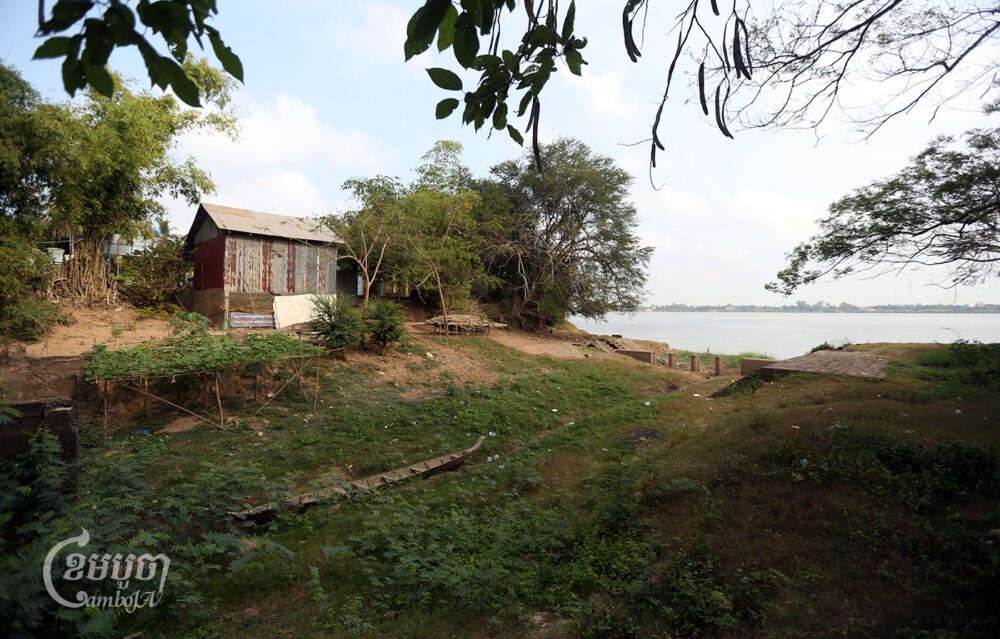One week into the national election campaigning period, two of the 18 political parties competing have yet to announce their prime ministerial candidates.
The Grassroots Democratic Party and the Khmer National United Party indicated to CamboJA that they would not have an official prime ministerial candidate for the July 23 national elections.
Sek Sokha, head of the central committee of the Grassroots Democratic Party (GDP), said that his party is seeking instead to have members gain seats in the National Assembly, which is currently entirely under ruling CPP control.
“We hope that [we] will have lawmakers join the National Assembly for legal advocacy, especially if we see any laws that do not serve the people,” he said. “If we have voices, we will amend any law that does not serve the interests of the nation or the people, and we have voices to advocate for the restoration of democracy.”
The Grassroots Democratic Party has eleven priority policies which include applying a two-term limit to the prime minister’s office, improving compensation and skills-trainings for laid-off workers, and increasing locally-sourced production of agricultural additives like fertilizers and pesticides to reduce farmers’ planting costs.
The party, founded in 2015, has pitched itself as an independent-minded political party but did not do well in the last election mandate, according to public database Kamnotra. In the past year, the party has experienced an exodus of top party leadership to the ruling CPP.
Khmer National United Party spokesperson Phann Sethi also said that his party has no plans to announce its prime ministerial candidate. Sethi was unconcerned about the impact this may have on the party, which says it seeks to promote social justice and a centrist liberal democracy.
Sethi said the party’s first priority was to get its 125 parliamentary candidates elected. Yet he implied that party president Nhek Bun Chhay, who is also the party’s first ranked candidate in Banteay Meanchey province, was the party’s undeclared prime minister candidate.
“We think that usually the party president automatically becomes the prime ministerial candidate if we win the election,” Sethi said.
The royalist-leaning party’s platform lists nine key policies, such as providing subsidized healthcare for only 10,000 riel ($2.50) per appointment, granting each commune with $500,000 dollars if they do not use drugs or practice gambling, and setting the price of rice at 1,200 riels per kilogram.
All of the other 16 political parties registered to compete in the July elections have declared prime ministerial candidates, CamboJA found by surveying each party. The ruling CPP has announced two candidates: Hun Sen, who is the world’s second-longest serving prime minister, and his son, Hun Manet.
Sam Kuntheamy, president of the Cambodian branch of the voting rights network Neutral and Impartial Committee for Free and Fair Elections, said that party’s typically announce their prime ministerial candidates in advance to make it easier for people to check the candidate’s qualifications.
“Without announcing [the candidate], it will be difficult for voters to make decisions because voters need to know the information so that they can make political decisions based on the policy, starting from the parliamentary candidates to the prime ministerial candidates,” Kuntheamy said.
National Election Committee (NEC) spokesperson Hang Puthea said parties are not mandated to declare a prime ministerial candidate to participate in national elections. The party can nominate a candidate for prime minister if the candidate wins a seat in the national assembly, he added.
“So, announcing or not announcing is not a mistake,” he said.
The prime minister is chosen from among the elected members of the National Assembly.
Other qualifications for prime minister include: being a member of a registered political party, having Khmer citizenship by birth, being over the age of 24, having residence in Cambodia, and having the right to vote and one’s name on the voting list, according to the Law on the Election of Members of the National Assembly.
Article 119 of the Cambodian constitution, passed into law last year, says that the prime minister can only hold Khmer nationality. The amendment disqualifies long-time opposition figure Sam Rainsy, who also holds French citizenship.
Additional reporting by Phon Sothyroth.


